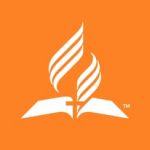Churches should be the safest places for children and young families. Church attendance provides spiritual comfort and inspiration and a critical social network. The healthy lifestyle, prayer life, and the message of love and forgiveness contribute to a person’s overall wellbeing and fulfilment; Unfortunately, however, churches can also attract people who see the environment of love, care and trust as an opportunity for abuse and exploitation
That is why we all have to be alert.
According to Dallas O’Connor, Investigation Coordinator at Safe Place Services, addressing risks begins with recognising the existence of risks. “If we don’t realise there is a problem, then there is little motivation to do anything about it. The data that Safe Place Services has accumulated over the past 10-years shows us clearly who is at risk in the Adventist Church in Australia and New Zealand. 75% of cases investigated by Safe Place Services relate to situations in local congregations, and it is women and children who are most likely to experience the Church as unsafe.”
Pr David Robertson, Director of Safe Place Services, says “It appears that there has been a shift in the Church’s culture over the past decade. When conducting training amongst Churches and local Conference leaders, the culture of denial and embarrassment that used to exist when talking about abuse has been replaced with an openness and willingness to acknowledge and address issues. In 2010, a survey of Conference-level administrators and departmental staff across both Australia and New Zealand, gained 68 responses.” Overwhelmingly, respondents in the survey agreed that: (1) perpetrators can deliberately target the Adventist Church for child-victims (82%); (2) Adventist congregations are not thought to be safer for children than groups in the community like sports clubs or child care centres (86%); and (3) being a ‘believer’ does not make a person automatically ‘safer’ in terms of their potential to abuse (85%). “This level of response indicates that the Church’s leadership now have their eyes wide open to potential risks,” reflects Pr Robertson.
Pr Robertson states, “We now recognise and have a better understanding of risks. As we see the work being done in local Conferences to establish Safe Place Committees; implement local Church policies and train local Church Boards and children’s ministry leaders, the safety within the Church is increasing. As local Churches, Conferences, and the Unions across Australia and New Zealand continue to work together, these combined efforts are helping the Church in its mission to offer a foretaste of the peace and safety that will one day characterise God’s eternal kingdom.”
What should I do in response to abuse?
Situations of children exposed to abuse or neglect should be reported to Government child-protection services in your region. In an emergency contact Police in Australia on 000 or on 111 in New Zealand. To seek advice, or to discuss a situation of concern within the Adventist Church, call Safe Place Services on 1800 220 468 in Australia or 0800 442 458 from New Zealand. The Church’s website www.safeplaceservices.org.au contains information on counselling and child protection services throughout Australia and New Zealand.
The 5 Essential Safety Steps to Prevent Abuse:
(1) ALWAYS have two or more adults present at activities for children and young people;
(2) Promote an open-door policy; activities are not run in confined and private one-on-one spaces;
(3) Screen volunteers using reference checks and required criminal history checks;
(4) Require new attendees to wait six months before appointing then to work with children;
(5) Train and support volunteers.
These steps are covered in the Child Environments Safe policy template for local churches and endorsed for use in Australia and New Zealand by both Unions. The Policy, and all the resources that go with it such as forms, brochures, and posters, have been translated into Spanish, Chinese and Samoan. These can all be downloaded by visiting the Safe Place Services website.


























